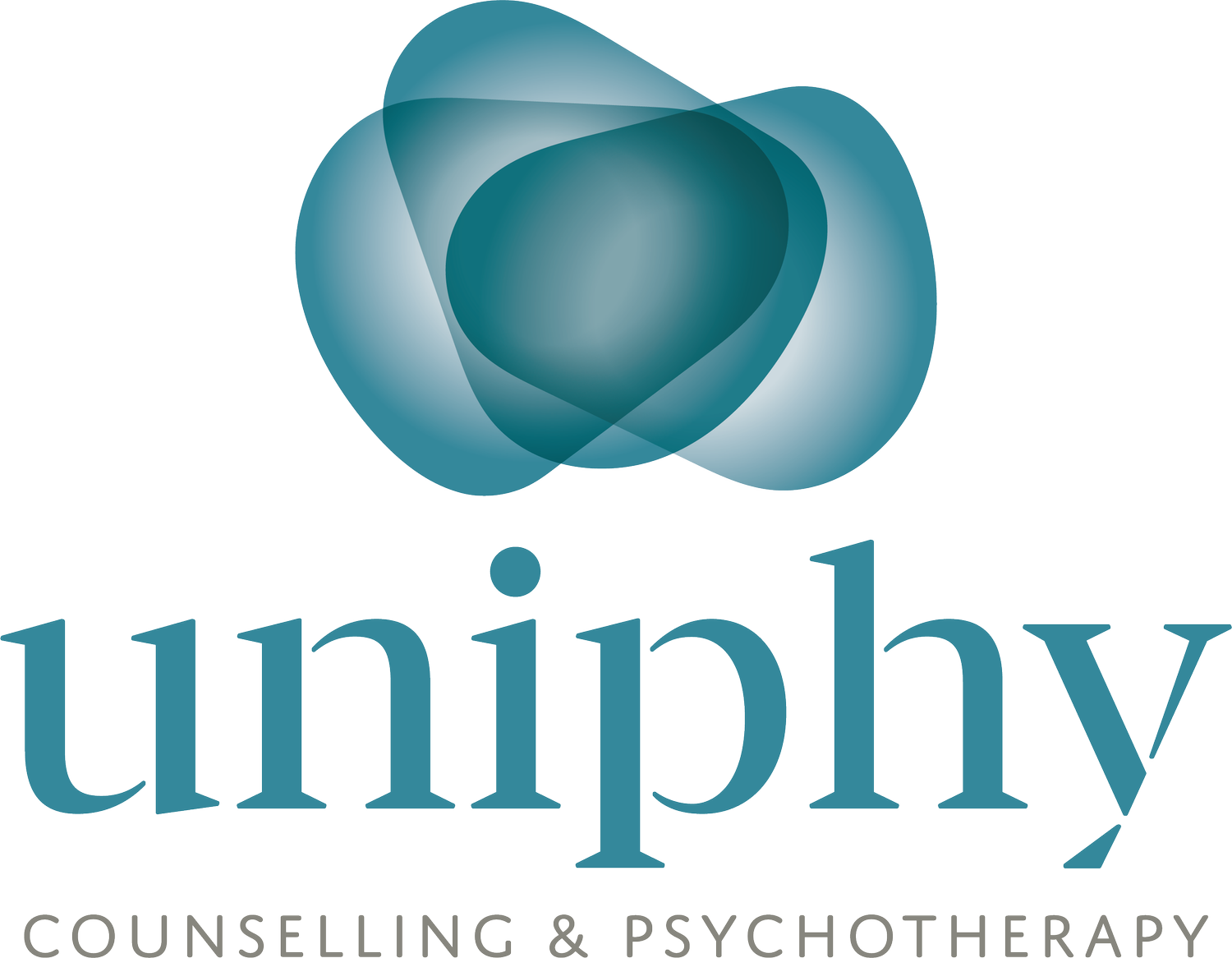Frequently Asked Questions
Counselling or Psychotherapy?
What’s the differences and which is right for me?
Counselling focuses on symptom relief, offering some coping strategies for current experiences. It’s effective for such things as grief, mild anxiety, or low mood etc. and is usually conducted over a short term.
Psychotherapy relieves unpleasant symptoms too, but once manageable, aims to make sense of why and how experiences from the past influence your present. This in-depth link gives you insight into your thoughts, feelings, and behaviours, so you have a choice in your future. Psychotherapy is a longer term process, but the results are long term too.
Why choose Uniphy?
Offering a comfortable, safe, and judgement free environment, I consider our work a collaboration. We’ll work together on your journey, and we’ll define your expectations and goals early in the process to ensure you get what you need from the start, and we’ll check in occasionally to see how you feel about your journey.
How do I make an appointment?
Simply complete the enquiries page and I’ll be in touch.
You are guaranteed a reply within 24 hours or the next working day.
(All initial emails are followed up with a text)
What kind of training do you have?
I am an accredited Psychotherapist through the United Kingdom Council for Psychotherapy (UKCP) with a Level 6 Diploma in Psychotherapeutic Counselling and Level 7 Diploma in Psychotherapy and can be found on their web register.
I follow the ethical and best practice standards recognised in the industry today and I am registered with the Information Commission Office (ICO) to uphold GDPR legislation.
Where do sessions take place?
Sessions are offered face-to-face and online from Studio 4 in the centre of Newcastle Upon Tyne. The location offers safe and secure access and has been furnished with effective emotional and psychological support in mind, making the most of comfortable seating in a well-lit and spacious studio.
I’ve had counselling in the past and it wasn’t a great experience, what will make this any different?
Sadly, it is not uncommon to hear this, but I work hard to offer a tailored, integrated, approach to fit your needs. Working relationally I aim to ensure you find the experience that will best guide you on the journey you need to take.
Counsellors and Therapists never give a straight answer.
They always answer with a question, and never give advice. Why?
We each have our own reasons for needing support and those individual therapeutic goals and objectives need to be clear and worked towards; but at the root of all good therapy is autonomy. It’s a means by which we sit alongside you, and guide towards an insight that strengthens your self-governance. A technique to help with this is ‘reflective listening’, which involves responding to a client's statements or questions with reflection, helping people explore their thoughts and feelings more deeply.

